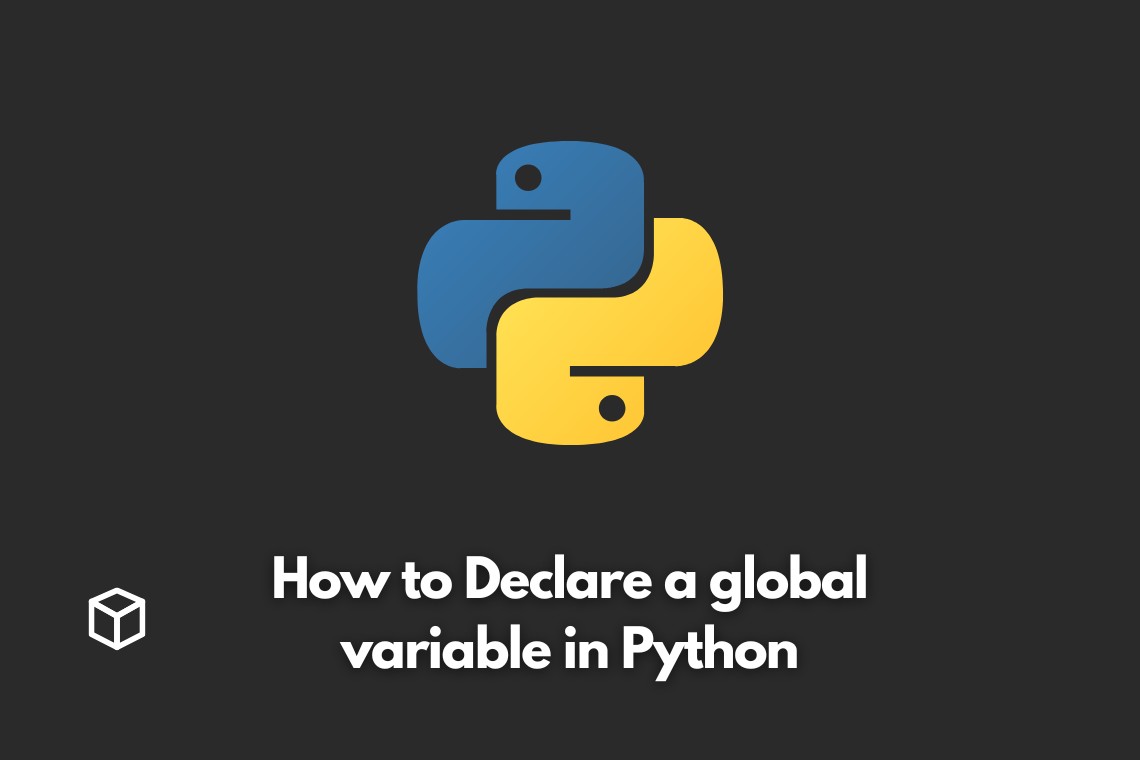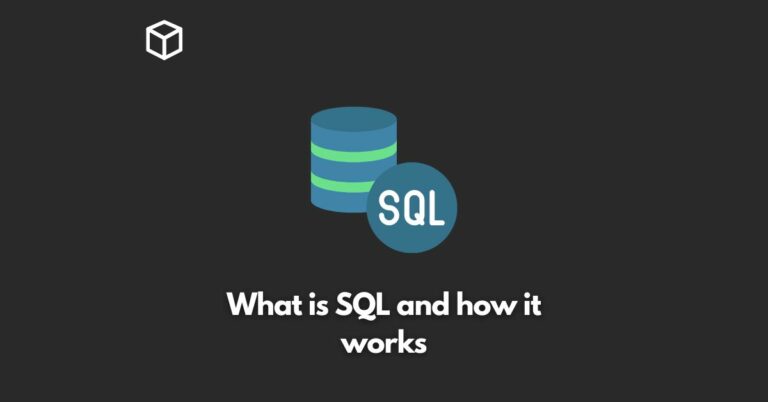Are you tired of constantly passing variables around your Python script or juggling multiple functions just to maintain their values?
Well, fear not because today I’m going to show you how to take control of your data and streamline your code by declaring global variables in Python.
A global variable, as the name suggests, is a variable that is accessible and modifiable throughout your entire script.
This means that you can set the value of a global variable in one function and then access and use it in another function without any hassle.
This comes in handy for maintaining state or sharing data across different parts of your program.
Declaring a global variable in Python is a straightforward process.
You simply need to use the “global” keyword before the variable name in the function where you want to make it global.
def func1():
global variable_name
variable_name = "hello world"You can also use a global variable outside of a function and this variable will be accessible and modifiable throughout the script.
variable_name = "hello world"
In this blog post, we’ll be diving deeper into the concept of global variables in Python, understanding scope, best practices for using global variables, and examples of how to declare global variables in Python.
So whether you’re a beginner or an experienced coder, you’re sure to learn something new.
So fasten your seatbelts and let’s get started!
Understanding Scope in Python
Alright, now that we have a basic understanding of what global variables are, let’s talk about scope.
In Python, scope refers to the area of a program where a variable is accessible and can be used.
Understanding scope is crucial when it comes to declaring global variables, as it determines the accessibility and lifetime of a variable.
There are two types of scope in Python: global and local.
A global variable, as we discussed in the previous section, is a variable that is accessible and modifiable throughout your entire script.
On the other hand, a local variable is a variable that is only accessible and modifiable within a specific function or block of code.
It’s important to note that when you’re declaring a variable inside a function, Python will automatically treat it as a local variable unless you explicitly declare it as global.
def func1():
variable_name = "hello world" # this is a local variable
def func2():
global variable_name
variable_name = "hello world" # this is a global variable
Now, let’s take a look at some examples of how scope can affect the use of variables in a program.
variable_name = "Hello world" # this is a global variable
def func1():
print(variable_name) # "Hello world"
def func2():
variable_name = "Bye World" # this is a local variable
print(variable_name) # "Bye World"
func1() # Output: "Hello World"
func2() # Output: "Bye World"
print(variable_name) # Output: "Hello World"
In this example, we have a global variable variable_name which we can access and use in both func1 and func2.
But in the func2 we also have a local variable variable_name which will shadow the global one, so if we use the variable_name inside the function will be the local one, if you call it outside the function it will be the global one.
So now you have a better understanding of what scope is and how it works in Python.
Knowing the difference between global and local variables, and how scope can affect the use of variables in a program, you’ll be able to write cleaner, more efficient code.
Remember that global variables are accessible throughout the whole script, and local variables are only accessible within their scope, their scope is restricted to the function they are declared in.
Declaring Global Variables in Python
Now that we have a good grasp of scope in Python, let’s dive into how we can actually declare global variables in Python.
The syntax is actually quite simple: all you need to do is use the “global” keyword before the variable name in the function where you want to make it global.
def func1():
global variable_name
variable_name = "hello world"By adding the global keyword before the variable, we’re telling Python that we want to use the global variable with this name, not create a new local one.
You can also use a global variable outside of a function, This can be done by directly assigning the value to the variable.
variable_name = "hello world"
In this case, the variable variable_name will be accessible and modifiable throughout the script.
Here is another example, showing the difference between using a global variable inside and outside of a function:
variable_name = "Hello World"
def func1():
print(variable_name)
def func2():
global variable_name
variable_name = "Bye World"
print(variable_name)
func1() # Output: "Hello World"
func2() # Output: "Bye World"
print(variable_name) # Output: "Bye World"In this example, we first declare variable_name as a global variable, with a value “Hello World”, in func1 we are just accessing the global variable so the output will be “Hello World” , in func2 we’re using the global keyword to access the variable, and then we change its value to “Bye World”.
After calling the function, if we print the variable outside the function, the output will be “Bye World” which shows that global variable was modified inside the function.
As you can see, declaring global variables in Python is pretty simple.
However, it’s important to keep in mind that global variables should be used sparingly and only when necessary, as they can make code harder to read and maintain if overused.
It’s worth mentioning that there are some specific cases where you can use the nonlocal keyword, this keyword is used to assign a value to a variable in the nearest enclosing scope that contains that variable, but is not a global variable, this is useful when working with nested function, you can check python documentation for more details.
Best Practices for using Global Variables in Python
Now that we know how to declare global variables in Python, it’s important to discuss best practices for using them.
As we’ve seen, global variables can be a powerful tool for maintaining state and sharing data across different parts of your program, but they can also make your code harder to read and maintain if not used correctly.
One of the pros of using global variables is that they can simplify your code by eliminating the need to pass variables around multiple functions.
They can also be useful for maintaining state, such as when you need to keep track of the number of times a specific function has been called.
However, one of the cons of using global variables is that they can make your code less modular and harder to understand.
When multiple parts of a program depend on the same global variable, it can be difficult to keep track of how that variable is being used and modified.
This can lead to unexpected behavior and bugs.
So, when should you use global variables and when should you avoid them?
A good rule of thumb is to use global variables sparingly and only when they are necessary.
For example, if you need to share data between multiple functions, or if you need to maintain state across multiple function calls, global variables can be a good choice.
However, if you’re only using a variable within a single function, it’s best to use a local variable instead.
When using global variables, it’s important to make your code as readable and maintainable as possible.
Some tips to keep in mind include:
- Use clear and descriptive variable names
- Avoid using the same variable name for different purposes
- Make sure the variable is only being accessed and modified in the parts of the code where it’s needed
- Consider using object-oriented programming techniques like classes and objects to manage global state
- Use comments, to explain the usage of global variables and reasoning behind their usage.
It’s worth noting that a more efficient way of managing global variables is by using classes, these classes can have a class variable that acts as a global variable, this is useful when you have a lot of functions that should share the same state and allows you to avoid changing the value of variables directly and makes the code more readable and maintainable.
Conclusion
And there you have it folks, a comprehensive guide on how to declare and use global variables in Python.
In this post, we covered everything from understanding scope and the differences between global and local variables, to examples of how to declare global variables and best practices for using them.
Bonus : How to use global variable inside a function
In addition to declaring global variables, you may also need to use them within a function.
Using a global variable inside a function is quite similar to using a normal variable, with just a slight difference.
When you use a global variable inside a function, you need to first use the “global” keyword before the variable name to tell Python that you want to access the global variable and not create a new local one.
Here’s an example:
variable_name = "Hello World"
def func1():
global variable_name
variable_name = "Bye World"
print(variable_name)
func1() # Output: "Bye World"
print(variable_name) # Output: "Bye World"
In this example, we first declare the variable variable_name as a global variable, with a value “Hello World”, in the function func1, we are using the global keyword to access the global variable variable_name, and then we change its value to “Bye World”.
After calling the function, if we print the variable outside the function, the output will be “Bye World” which shows that the global variable was modified inside the function.
It’s worth noting that when you use a global variable inside a function you can also modify it but you have to use the global keyword, otherwise python will create a new local variable with the same name, and the global variable will remain unchanged.
Just remember that you need to use the global keyword when you want to modify a global variable inside a function, but you can access and use it without the keyword.
Also, using global variables inside functions is not always the best idea, it is better to use function parameters and return values to pass information between functions and make the code more readable and maintainable.
It’s always a good idea to evaluate the need for a global variable and weigh the pros and cons before using it inside a function.
Additional Resources
Additional Resources for learning more about global variables in Python:
- The official Python documentation on global and nonlocal statements : https://docs.python.org/3/reference/compound_stmts.html#the-global-statement
- This great blog post on Python Scopes and Namespaces : https://www.datacamp.com/community/tutorials/scope-of-variables-python
- Python Namespaces, Scope Resolution and the LEGB Rule : https://www.datacamp.com/community/tutorials/scope-of-variables-python
These resources provide a deeper understanding of global variables in Python and how to use them effectively in your code.
By following the best practices and examples from these resources, you’ll be able to take your Python programming skills to the next level.




